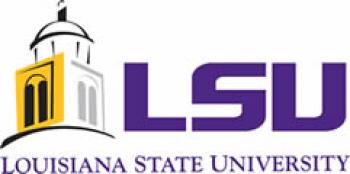LSU’s Richardson estimates one-year recovery period from floods
The numbers are staggering. Thirty-one inches of rain in 15 hours in Livingston Parish alone, 13 people dead across five parishes, 20 parishes designated as disaster areas, and more than 30,000 residents and 1,400 pets rescued.
LSU Economist and Professor of Public Administration James Richardson has another number in mind – one, as in one year to recover from what pundits have called the worst storm to hit the United States since Hurricane Sandy in 2012 and one year to fully realize the economic impact of the flood damage.
“You can count certain things (right now), such as the number of homes that were flooded, business that were flooded, public facilities such as schools that may have been flooded … then you start asking, ‘what are the real issues that are going to be coming over the next year?’” Richardson said.
“Businesses, for the most part, will get back up and running quickly. Perhaps not some small businesses in areas badly hit like Denham Springs … but national chains will have resources and additional dollar amounts to get (going again).”
For the short-term, Richardson said a boost to the local economy can be expected. Individuals will need to purchase items like appliances, furniture and even vehicles to replace those lost in the flood. Restaurants will see an increase because those affected will need to eat out more. Big-box stores like Target, Wal-Mart and Costco will most likely also see a temporary spike in sales because flood victims will need to buy basic items. Add in monies from federal assistance and bank loans, Richardson said, and that is a lot of “new dollars” being added immediately to the local economy.
“In about a year or so, that’s when you start seeing the drop-off,” Richardson said. “(People think), ‘I don’t need to buy more things and I need to start paying back my debt.’
On a broader scale, the state’s economy will also feel the effects of the flood, albeit in a different way than one might think.
“The first element is it’s taking all of the time of the governor, the commissioner of administration, and most of the cabinet officers to deal with this. So that means that if there’s any other pressing issues, they really just have to put them on the back burner and everybody understands that,” Richardson said. “In terms of dollars, the governor has been very upfront in saying he’s not going to let the budget prevent him in terms of response. And probably (the state government) has people working on how do we get this money back? There will be different federal mechanisms to do that.”
A much more complicated issue, Richardson said, than that of the economy is housing. Most people did not have flood insurance, meaning private insurance dollars will not be substantial in contributing to recovery. Instead, they will have to rely on personal assets, refinancing their homes and borrowing from banks. There is also the possibility of aid from the state and federal government; however, all of these methods come with terms and conditions and ultimately put the financial burden squarely on the individual.
“The next part of recovery is more complicated; the people that were so injured are going to have to lead the parade to get back where they were,” Richardson said. “They’ve got to recover their wealth, their assets. They’ve got to do something which is very hard and now probably without the same level of resources they had before. So they have to come back strong and then the state, the federal government, private individuals, charities, etc., we all can start pitching in to help them in some form or fashion.
“People are tough, people are resilient and they will always rise to the occasion.”
The Public Administration Institute at LSU’s E. J. Ourso College of Business offers a 45-hour degree program that emphasizes management, public policy and financial skills for those leading public agencies, nonprofit and healthcare organizations and for-profit organizations that interact with governmental agencies. PAI’s faculty members are student-oriented and nationally-recognized for their expertise in their fields.
For more information, visit www.business.lsu.edu/pai or call 225-578-6743.
- Log in to post comments

